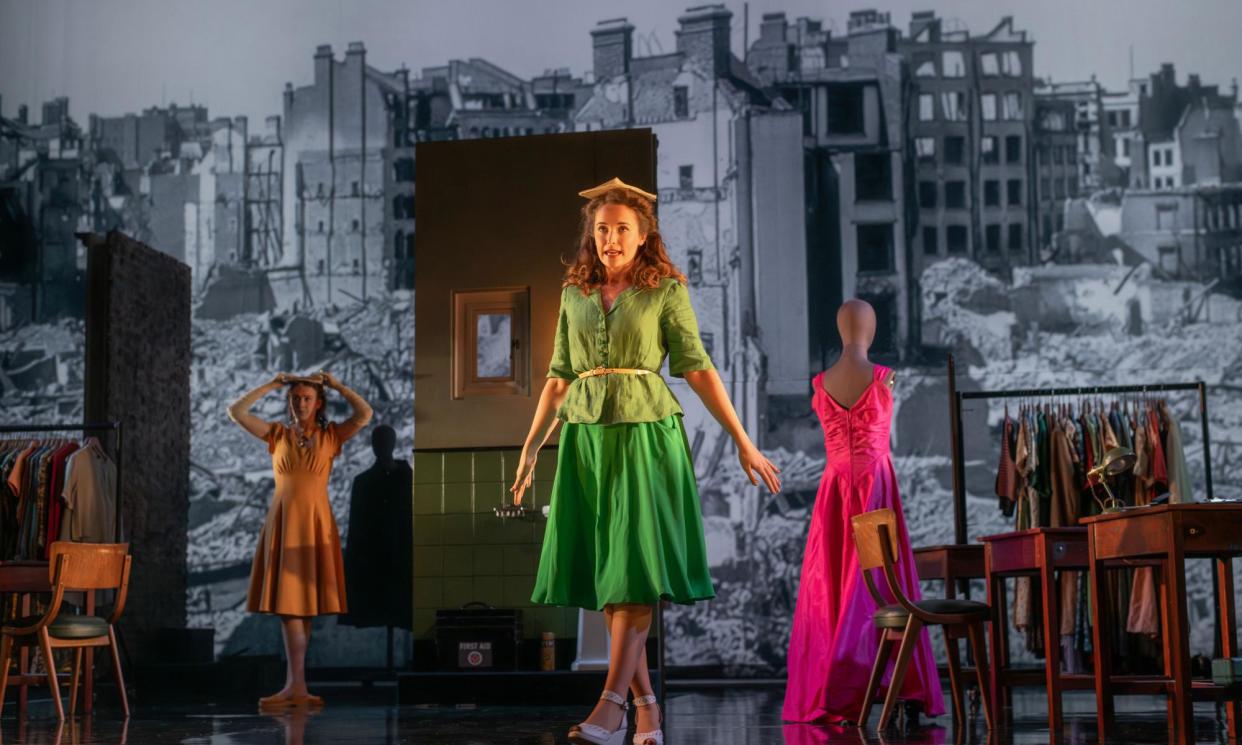The Girls of Slender Means review – Muriel Spark’s postwar tale told with zingy wit

We are in that open-ended time between a long collective trauma and the arrival of a Labour government. You will know the feeling, but this is not 2024. Rather, it is in the weeks after VE Day in 1945 when, in Muriel Spark’s witty novella, the young women lodging in the May of Teck Club try to establish career and love life on a shoestring.
Amid the uncertainty, there is merriment. These girls of slender means can still laugh. But just beneath the surface are wounds that linger like PTSD. At this time when “all the nice people in England were poor”, they have bottled up the bombs, the sirens and the reports from Belsen as part of their patriotic duty. Spark’s genius is to show pain and ephemerality side by side.
It is the genius too of this life-affirming production, expertly adapted by Gabriel Quigley and briskly directed by Roxana Silbert with a delightful ensemble cast. You see it in Jessica Worrall’s set on which the primary coloured exuberance of the women’s wool dresses is in contrast to the photograph that fills the back wall, a view of bombed streets in all their monochrome desolation. On one hand, the breeziness of elocution lessons, handsome men and literary parties; on the other, the bitter note of loss and austerity.
Where Spark playfully skips backward and forward in time, Quigley wisely gives theatrical order to the material. She frames it from the point of view of Jane Wright, now an imposing editor of Elan fashion magazine, the covers rendered with period perfection on the back wall of her office and a publication where “penury has no place”. Excellently played by Molly Vevers, she looks back on her dowdy wartime self, doing her “brain work” in her yellow writer’s cardigan, longing to be seen for who she is.
She and her housemates, played winningly by Julia Brown, Amy Kennedy, Molly McGrath and Shannon Watson, are at once eccentric, lost and lovable, their quirks contrasting with the suave restraint of Seamus Dillane as love interest Nicholas Farringdon. It is a show that makes you glad to be in its company: sassy, smart, funny and quietly devastating.


